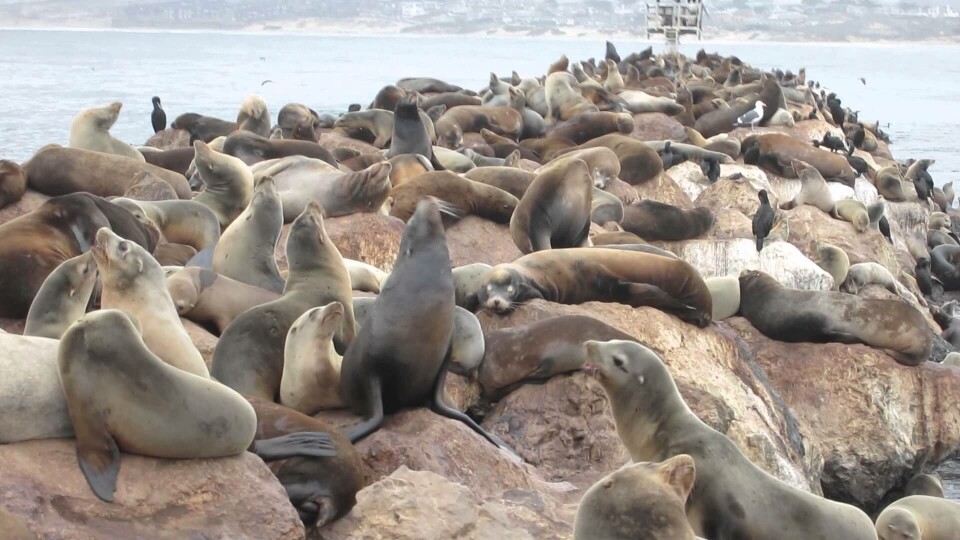
US marine mammal protection ‘threatening wild fish survival’
A law that threatens salmon exports to the United States has come under fire from officials trying to protect wild fish in the western state of Oregon.
The Marine Mammal Protection Act (MMPA) could lead to a ban on US imports of salmon from countries – including Scotland - where predators such as seals and sea lions are shot to protect farmed fish stocks.
But the law is also causing problems in Oregon, where attempts to relocate sea lions preying on threatened wild fish stocks has failed, and shooting the predators is banned by the MMPA, KTVZ.COM reported.
More than 25 California sea lions and an unknown number of Steller sea lions are continuing to prey on salmon, steelhead trout, sturgeon and lamprey in the Willamette River, the Oregon Department of Fish and Wildlife said last week.
Closer to extinction
Biologists estimate that California sea lions ate at least 18% of the returning wild Willamette winter steelhead adults prior to March, driving this population closer to extinction.
In the absence of federal approval to kill the California sea lions at Willamette Falls, ODFW attempted a stop-gap programme of capturing and relocating sea lions this spring.
“It’s our responsibility and mandate from the people of Oregon to ensure these fish runs continue,” said Shaun Clements, ODFW’s senior policy advisor. “So, it’s incredibly frustrating to us that federal laws prevent us from taking the only steps effective at protecting these fish from predation.”
During the course of five weeks in February and March, ODFW relocated 10 California sea lions to a beach 210 miles away. All marked animals returned, most within 4-6 days. One was even captured and relocated to the coast twice, but came back on both occasions.
Relocation futile
“Clearly, our experience on the Willamette River this year demonstrated the futility of relocating sea lions as a way of stopping them from driving our native fish runs to extinction,” Clements said.
That’s one reason why ODFW has decided to leave its sea lion traps in place on the Willamette and transition sea lion operations to Bonneville – where the agency already has federal authorization to lethally remove sea lions.
“It’s disheartening, given what’s happening in the Willamette, but we don’t have enough staff to cover both locations so we’re moving to a place where we can be more effective,” said Bryan Wright, ODFW’s Marine Mammal Program Lead.
300,000 sea lions
Currently, the run of upper Willamette wild steelhead stands at 1,338, which is slightly higher than in 2017 but still well below historical runs that often topped 10,000. In contrast, the California sea lion population is exceptionally healthy and fluctuates between 250,000-300,000 animals.
Wright said: “Removing these few male animals that have habituated in freshwater would have no impact to the sea lion population but would provide much-needed relief to fish runs and prevent similar crises from occurring elsewhere.”
ODFW has applied to the federal government for authorisation to lethally remove sea lions at Willamette Falls under Section 120 of the Marine Mammal Protection Act. Even if that application is approved, it won’t be until 2019 at the earliest.
ODFW senior officials are also working with the region’s congressional delegation to address the inflexibility of the MMPA to deal with these issues in a more timely manner.























































